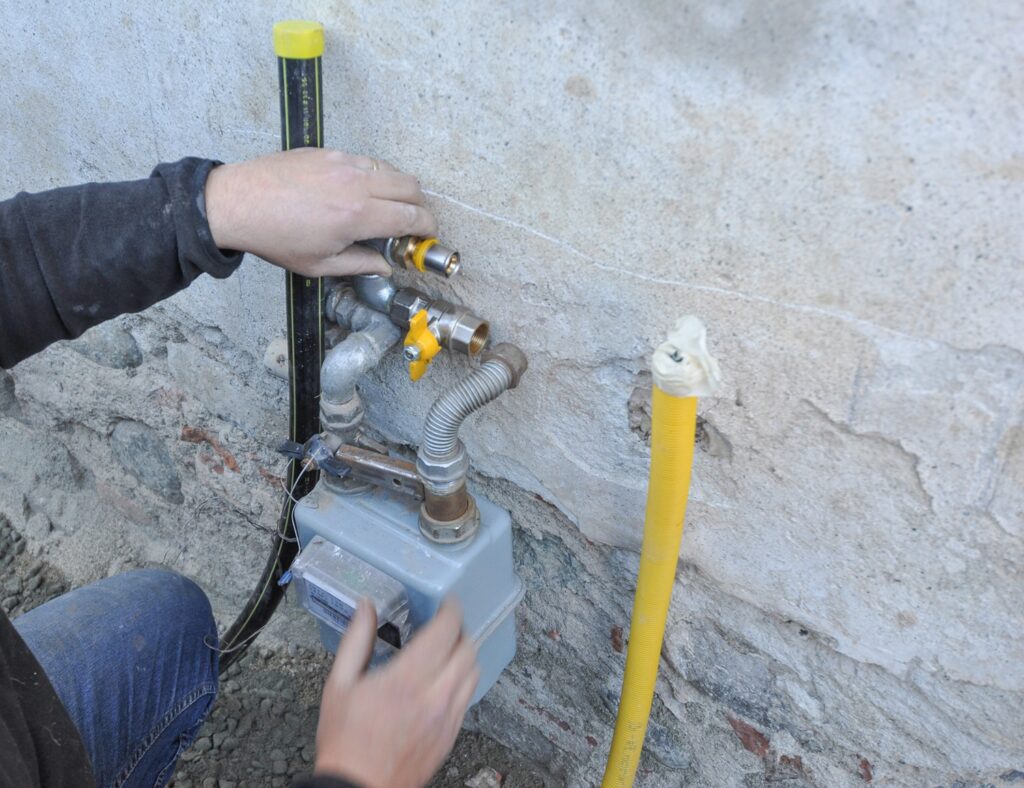Property managers have a long list of responsibilities, from maintenance scheduling to tenant communication. Among the most critical tasks is ensuring gas line safety. Gas systems provide heat, hot water, and cooking fuel, but they can also become hazardous if overlooked. A poorly maintained system increases the risk of leaks, explosions, and regulatory violations, making proactive oversight essential.
Managing gas line safety is not only about compliance but also about protecting people and property. By knowing the risks, conducting regular checks, and understanding professional requirements, property managers can ensure both tenant well-being and operational efficiency.

Recognizing the Risks of Gas Lines
Gas lines, while durable, are subject to wear and tear over time. Aging infrastructure, improper installation, or even environmental factors can compromise their integrity. Recognizing risks early helps prevent emergencies.
Common risk factors include:
- Corrosion: Metal pipes deteriorate, especially in older properties.
- Improper installation: Poor workmanship leads to unstable connections.
- Ground shifting: Soil movement places stress on buried lines.
- Damage from renovations: Construction projects may puncture or weaken lines.
- Aging materials: Outdated pipes in older buildings require closer attention.
Property managers overseeing older properties should be especially vigilant. Many historic buildings were constructed with outdated piping, which can no longer meet modern safety standards. Understanding why old homes may need gas line replacements underscores the importance of inspections before problems arise.
Conducting Routine Safety Checks
Routine inspections form the foundation of gas line safety and are one of the most practical ways property managers can stay proactive. Even though only certified professionals should handle repairs or replacements, property managers can still play a vital role in identifying early signs of trouble. Regular checks help catch problems before they escalate into costly or dangerous emergencies.
When walking through properties, managers should keep a keen eye and ear open for anything unusual. This not only builds a reliable history of system performance but also demonstrates diligence to tenants and regulators. Small issues, like a minor odor or a slightly loose connection, can quickly grow into major hazards if ignored.
Checklist for routine checks:
- Inspect exposed lines: Look for visible rust, cracks, or loose fittings, especially in basements, utility rooms, and near appliances.
- Check for odors: A sulfur-like smell is one of the most recognizable indicators of a gas leak.
- Listen for hissing sounds: A high-pitched hiss often signals escaping gas from a compromised line.
- Review appliance connections: Ensure stoves, furnaces, and water heaters remain secure and show no signs of wear.
- Monitor utility bills: A sudden spike in gas usage may point to hidden leaks or inefficiencies.
These routine checks should be documented in maintenance logs, making it easier to track recurring issues or patterns. Property managers can also share findings with professionals during scheduled inspections, ensuring a more complete evaluation. Tenants should be encouraged to report problems immediately, but managers who stay proactive reduce risks significantly and extend the overall safety and reliability of their gas systems.
Coordinating Professional Inspections
Professional inspections are a non-negotiable part of gas line safety. Certified technicians bring specialized tools and training that go beyond what property managers can observe. Regular inspections also ensure compliance with local and state regulations.
Benefits of professional inspections include:
- Leak detection: Advanced equipment pinpoints even the smallest leaks.
- Pressure testing: Confirms the system can safely handle required loads.
- Code compliance: Verifies adherence to the latest safety standards.
- Preventive action: Identifies issues before they escalate.
- Documentation: Provides official reports for records and insurance.
Property managers must also remain familiar with the legal requirements in their region. For example, understanding gas line permits and inspections ensures managers stay compliant with regulations while avoiding costly penalties.
Educating Tenants on Safety Awareness
Tenant cooperation is critical for maintaining safe gas systems. While property managers handle oversight, tenants are the first line of defense in detecting potential problems. Providing simple safety education reduces risks and fosters accountability.
Key safety messages for tenants include:
- Report leaks immediately: Encourage calls at the first sign of unusual smells.
- Do not tamper: Tenants should never attempt repairs themselves.
- Be cautious with appliances: Proper use prevents unnecessary strain on gas lines.
- Ventilation matters: Remind tenants to keep vents clear for efficient airflow.
- Emergency procedures: Ensure all tenants know how to shut off gas valves if instructed.
Creating tenant handouts or including gas safety guidelines in lease agreements ensures the message is consistent and accessible.
Long-Term Benefits of Proactive Safety
Investing in gas line safety delivers long-term advantages for property managers. Beyond minimizing emergencies, proactive care protects reputations, reduces liability, and increases tenant satisfaction.
Advantages of proactive management include:
- Reduced repair costs: Preventive maintenance is less expensive than emergency repairs.
- Higher tenant retention: Safe, well-maintained properties encourage renewals.
- Insurance benefits: Strong safety records may reduce premiums.
- Regulatory confidence: Compliance demonstrates professionalism to inspectors.
- Peace of mind: Property managers avoid the stress of preventable crises.
In addition, properties marketed as safe and well-maintained often stand out in competitive rental markets, making gas line safety a sound investment in overall value.
Keep Your Properties Safe and Compliant
Gas line safety should never be left to chance. Property managers who recognize risks, schedule regular inspections, and educate tenants build safer environments while protecting investments. For expert guidance and reliable service, contact The Gas Connection and ensure your properties remain compliant, efficient, and secure.